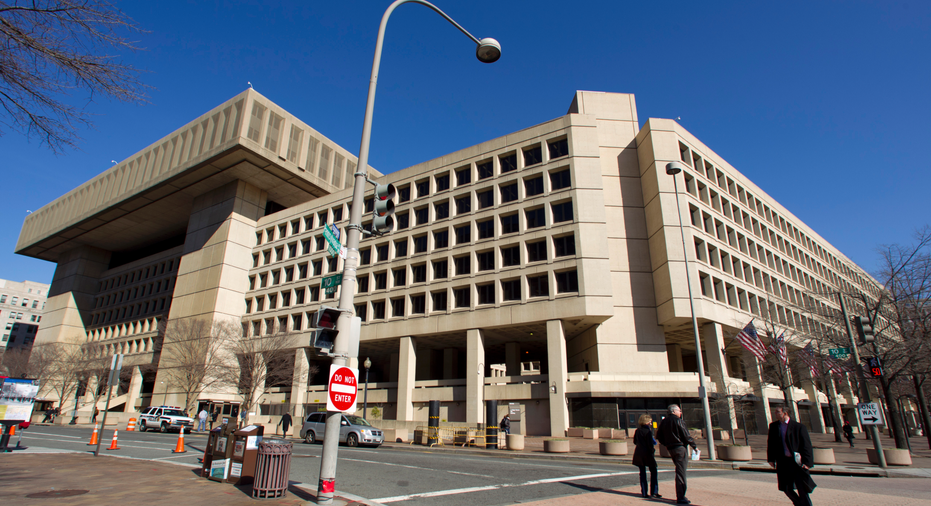Government scraps search for new FBI headquarters

WASHINGTON – The nation's top law enforcement agency will continue operating out of its deteriorating downtown Washington headquarters for the foreseeable future after the federal government announced Tuesday it had scrapped a decade-long plan to look for a new building in Maryland or Virginia.
The General Services Administration, which oversees federal office space, said it does not have enough money to move forward on a new location. The agency had sought $1.4 billion for the project, but Congress left it underfunded by about $882 million.
"Moving forward without full funding puts the government at risk for cost escalations" and could reduce the value of the existing building, the GSA said in a statement. "The cancellation of the project does not lessen the need for a new FBI headquarters. GSA and FBI will continue to work together to address the space requirements of the FBI."
The hulking J. Edgar Hoover building overlooking Pennsylvania Avenue has long been the government building everyone loves to hate. The FBI has complained that the blocky, concrete behemoth -- named for the agency's first and longest-serving director -- is obsolete, inefficient and no longer meets the needs of an organization that has grown dramatically in the last 40 years. Those concerns were confirmed by a 2011 Government Accountability Office report that agreed the building didn't meet the agency's long-term security needs.
Despite the Hoover building's unquestionable sentimental value, the FBI had been pushing to move thousands of employees spread among leased annexes in the region into a secure consolidated headquarters that would fit with an agency whose focus has evolved to intelligence and counterterrorism.
Three finalist sites in Maryland and Virginia were announced in 2014, but the General Services Administration delayed its choice multiple times. One of the finalists for the $1.7 billion contract was Vornado Realty Trust, which owns buildings with Donald Trump and the family of Jared Kushner. A Vornado spokeswoman did not immediately return a call for comment.
Local and federal officials in Maryland, Virginia and Washington, D.C. had been intensely jockeying for the new 2.1 million square-feet facility, which would have been a massive economic development project with the potential to bring thousands of jobs, expand the tax base and boost area retail and service industries.
Some lawmakers decried the decision to scrap the move.
"The Hoover building is crumbling around the FBI," Maryland's Democratic Sens. Ben Cardin, Chris Van Hollen, and Reps. Steny Hoyer, and Antony Brown said in a statement. "Our national security mandates that we move forward with building a secure, fully consolidated FBI headquarters."
Emmett Jordan, mayor in Greenbelt, Maryland, the location of one of the possible sites, was holding out hope that the government would reconsider.
"All these delays, all these years really have had a chilling effect," he said. Jordan said Greenbelt could have moved on to other options had the city known sooner. "How's local government supposed to function when the federal government can't follow through on its commitment?"
In Virginia, local officials had hoped to lure the FBI to redevelop an antiquated GSA warehouse that now sits on a prime piece of real estate near the Springfield Metro station.
Brian Coy, spokesman for Virginia Gov. Terry McAuliffe said, "it's a shame that the dysfunction of the Trump administration killed this project and will likely make it harder for the FBI to do its job."
But District of Columbia Councilmember Jack Evans said the proposed plans to relocate the headquarters have been unworkable for years.
"I applaud the fact that somebody pulled the plug," Evans said in a telephone conversation Monday evening.
Evans said the city has other locations that could work.
"I see no reason to ship it out to the outer regions," Evans said of plans to move to Virginia or Maryland. "Nobody wants to go out there."
Hardly praised as architecture, the iconic Hoover building has become part of American culture, serving as the backdrop for news broadcasts, novels, television dramas and movies. Agents moved into it in 1974 from cramped quarters in the Justice Department across the street.
__
Associated Press writers Jessica Gresko and Eric Tucker in Washington, Alan Suderman in Richmond, Virginia, and Matthew Barakat in McLean, Virginia, contributed to this report.



















